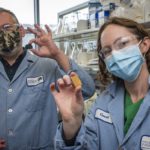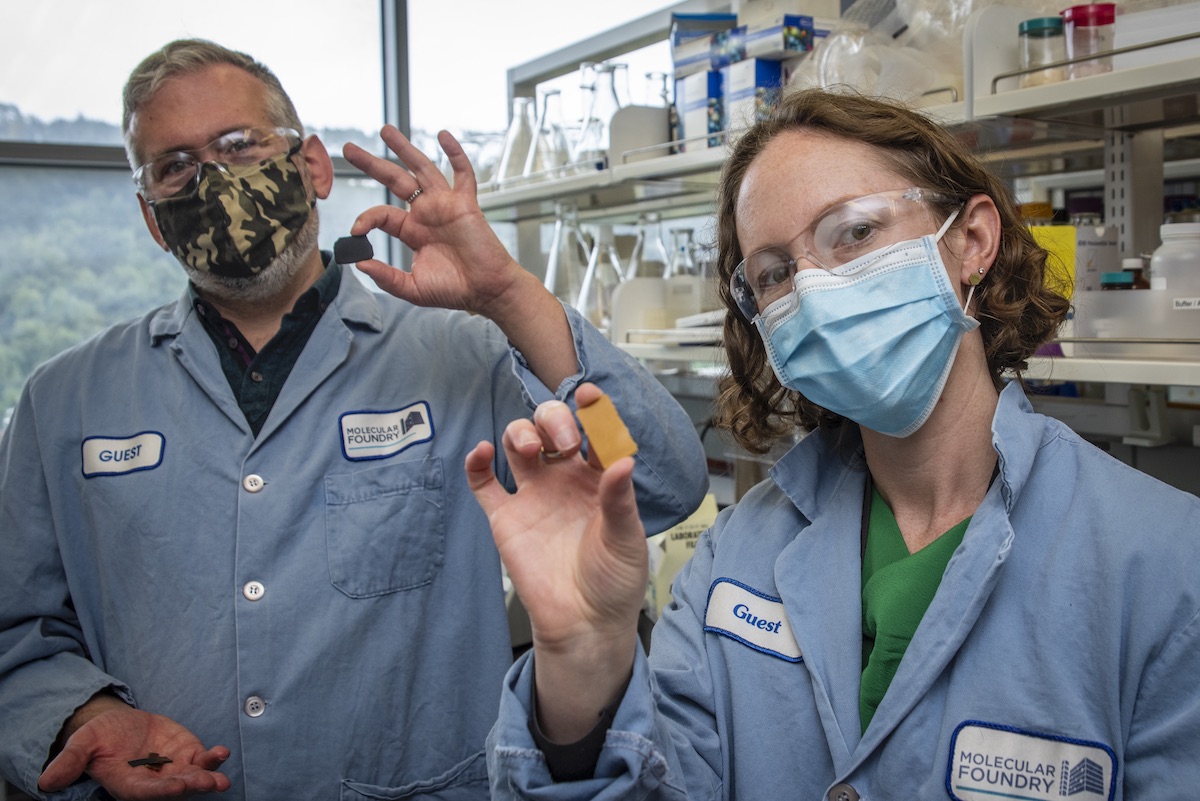 Corinne Scown, a scientist in Berkeley Lab’s Energy Technologies Area, and Vice President for the Life-cycle, Economics, and Agronomy Division at the Joint BioEnergy Institute (JBEI), and the Molecular Foundry’s Brett Helms, talk about a project that aims to solve the practical and environmental problems of traditional plastics.
Corinne Scown, a scientist in Berkeley Lab’s Energy Technologies Area, and Vice President for the Life-cycle, Economics, and Agronomy Division at the Joint BioEnergy Institute (JBEI), and the Molecular Foundry’s Brett Helms, talk about a project that aims to solve the practical and environmental problems of traditional plastics.
A multidisciplinary Berkeley Lab team has been working for several years to develop a game-changing plastic that, unlike traditional plastics, can be recycled indefinitely and is not made from petroleum. Their latest milestone was the release of an analysis showing the feasibility and potential outcomes of launching the unique material, called poly(diketoenamine) or PDK, into the market at an industrial scale.
The team found that making products out of recycled PDK could quickly become as cheap as making the same item with new plastic polymers (a very small proportion of our current plastics are recycled, so most products are made from “virgin” plastic resin), while also reducing CO2 emissions and energy requirements of manufacturing. Furthermore, the scientists plan to develop a process to create the initial PDK resin using microbe-fermented plant material, meaning that the entire lifecycle of a PDK plastic product could be low-carbon or even carbon neutral.
Once the infrastructure for large-scale PDK production and recycling is developed, the scientists envision that PDK could replace traditional plastics in a variety of consumer products, from car parts to water bottles.
Berkeley Lab spoke with two project leaders, Brett Helms and Corinne Scown, about the inspiration for PDK, shortfalls in our current recycling systems, and how this ambitious project is enabled by a diverse combination of scientific expertise.




